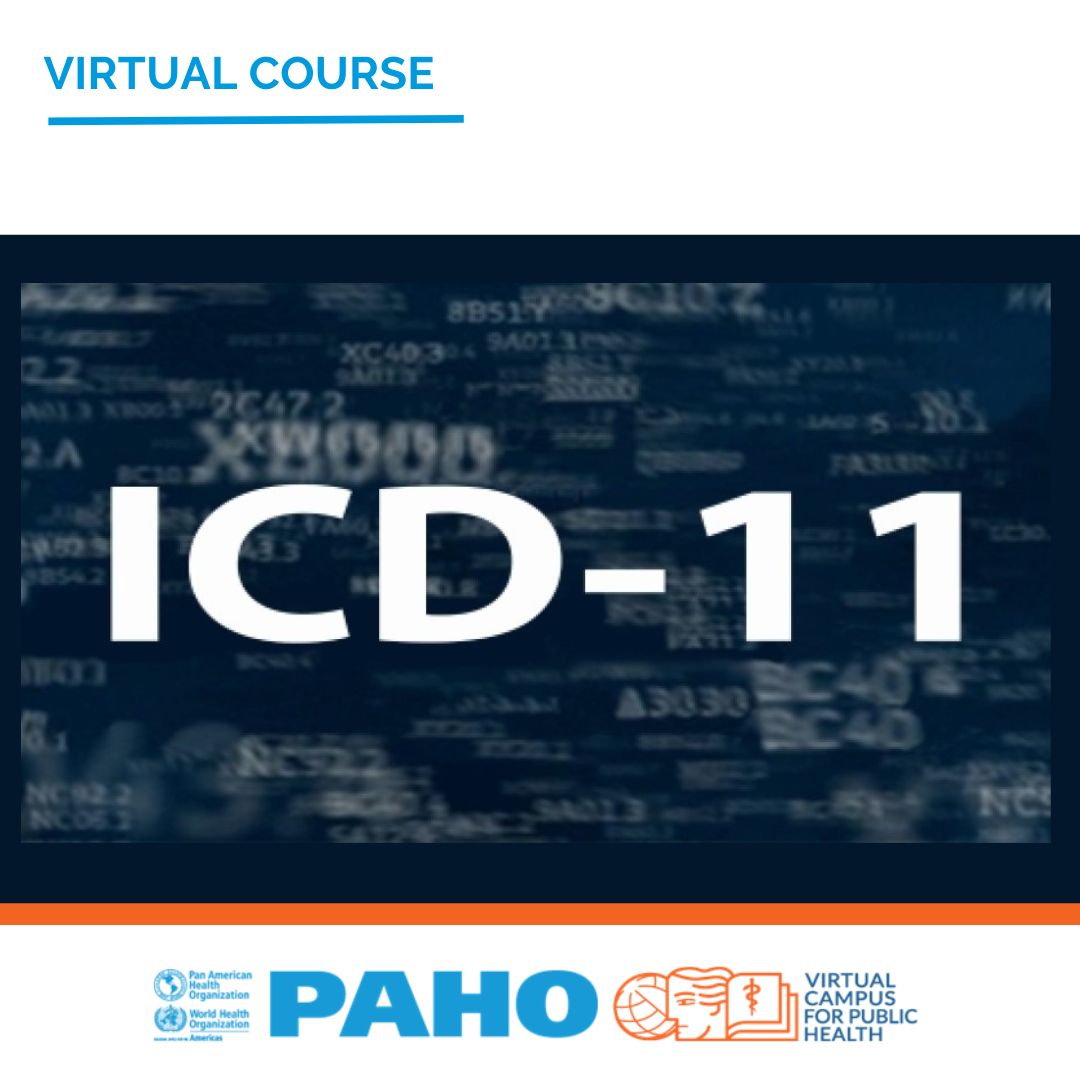
Introduction
Welcome to the online course "ICD – 11 tool" developed by the Direction of Evidence and Intelligence by Action in Health and the Virtual Campus of Public Health of the Pan American Health Organization. It is relevant that the countries of the region know and apply the ICD- 11 in order to have a common framework and language to report, complete, use and share health information at a national and international level.
The International Classification of Diseases (ICD) is a tool for recording, reporting, and grouping conditions and factors that influence health. It contains categories for diseases, health related conditions, and external causes of illness or death.
The purpose of the ICD is to allow the systematic recording, analysis, interpretation and comparison of mortality and morbidity data collected in different countries or areas and at different times. The ICD is used to translate diagnoses of diseases and other health problems into an alphanumeric code, which allows storage, retrieval, and analysis of the data. Such health information is used for epidemiology, prevention, managing health care, allocation of resources, outcomes monitoring, in research, and primary care.
Learning outcomes
At the end of the course, the student will be able to:
- Identify the structure of ICD-11.
- Identify the purpose and benefits of using ICD-11.
- Understand the classification conventions of ICD-11.
- Understand the difference between the Foundation and the ICD-11 Tabular List.
- Apply the ICD-11 conventions to classify clinical concepts, including use of extension codes.
- Perform the classification function using the ICD-11 Coding Tool and Browser.
- Identify the ICD-11 Maintenance Platform.
Course structure
| UNIT |
CHAPTER |
| Unit 1 Introduction to ICD-11 |
Introduction |
| Unit 2 Mortality coding rules |
Mortality coding rules |
| Unit 3 Morbidity coding rules |
Morbidity coding rules |
| Unit 4 ICD-11 Chapters 1, 2, 3 and 4 |
01 Certain infectious or parasitic diseases 02 Neoplasms 03 Diseases of the blood or blood-forming organs 04 Diseases of the immune system |
| Unit 5 ICD-11 Chapters 5, 6, 7, 9, 10 and 14 |
05 Endocrine, nutritional or metabolic diseases 06 Mental, behavioural or neurodevelopmental disorders 07 Sleep-wake disorders 09 Diseases of the visual system 10 Diseases of the ear or mastoid process 14 Diseases of the skin |
| Unit 6 ICD-11 Chapters 8, 11, 12, 13 and 15 |
08 Diseases of the nervous system 11 Diseases of the circulatory system 12 Diseases of the respiratory system 13 Diseases of the digestive system 15 Diseases of the musculoskeletal system or connective tissue |
| Unit 7 ICD-11 Chapters 16, 17 and 18 |
16 Diseases of the genitourinary system 17 Conditions related to sexual health 18 Pregnancy, childbirth or the puerperium |
| Unit 8 ICD-11 Chapters 19 and 20 |
19 Certain conditions originating in the perinatal period 20 Developmental anomalies |
| Unit 9 ICD-11 Chapters 22 and 23 |
22 Injury, poisoning or certain other consequences of external causes 23 External causes of morbidity or mortality |
| Unit 10 ICD-11 Chapters 21 and 24 |
21 Symptoms, signs or clinical findings, not elsewhere classified 24 Factors influencing health status or contact with health services |
| Unit 11 ICD-11 Traditional Medicine |
26 Traditional Medicine Conditions |
|
Unit 12 ICD-11 Functioning |
Supplementary section for functioning assessment |

